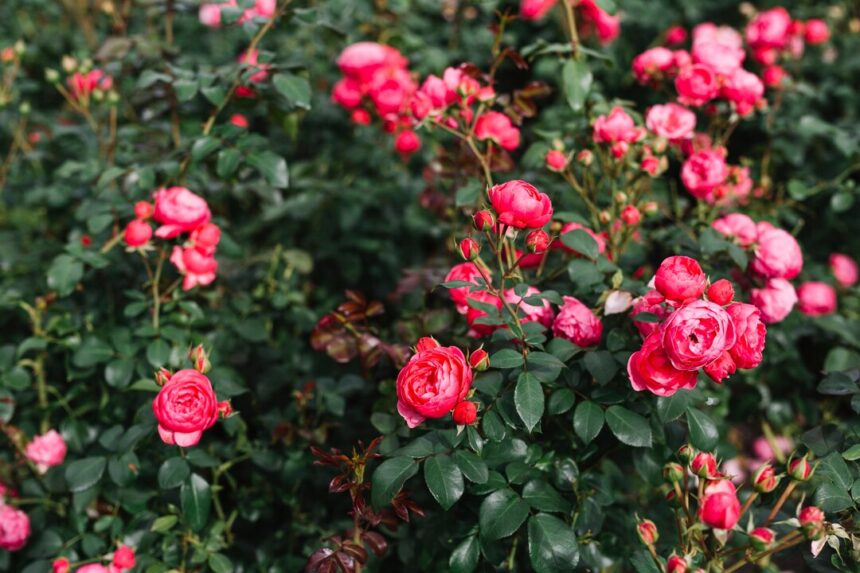Winter poses unique challenges for rose growers in South Africa, with colder temperatures and potential frost posing threats to delicate rose plants. However, with proper care and attention, farmers can safeguard their rose gardens and ensure healthy growth and abundant blooms come spring. Let’s explore some of the techniques and practices that South African farmers employ to protect their rose plants during the winter months.
1. Selecting Cold-Hardy Varieties:
One of the first steps South African farmers take in winter rose care is selecting cold-hardy rose varieties that are better suited to withstand colder temperatures. By choosing cultivars known for their resilience to frost and cold weather, farmers can minimize the risk of damage to their plants.
2. Providing Adequate Mulching:
Mulching is a crucial practice for insulating rose plants and protecting their roots from freezing temperatures. South African farmers apply a thick layer of organic mulch, such as straw, wood chips, or compost, around the base of rose bushes to retain soil moisture and regulate soil temperature.
3. Pruning for Winter Dormancy:
Pruning plays a vital role in preparing rose plants for winter dormancy. South African farmers prune their rose bushes in late autumn to remove dead or diseased branches, promote airflow, and encourage new growth in the spring. Pruning also helps reduce the risk of frost damage by removing vulnerable growth.
4. Watering Wisely:
While it’s essential to keep rose plants adequately hydrated during the winter months, overwatering can be detrimental, especially in cooler weather. South African farmers adjust their watering schedule to account for reduced water requirements and avoid waterlogged soil, which can lead to root rot and other issues.
5. Covering Plants During Frosty Nights:
When frost is forecasted, South African farmers take proactive measures to protect their rose plants by covering them with frost cloths or blankets. These protective covers help trap heat radiating from the soil and prevent frost from forming on the delicate foliage and blooms.
6. Providing Sheltered Growing Locations:
Choosing the right growing locations can make a significant difference in protecting rose plants from harsh winter conditions. South African farmers often plant roses in sheltered areas, such as against south-facing walls or near buildings, where they can benefit from additional warmth and protection from prevailing winds.
7. Monitoring Weather Conditions:
Keeping a close eye on weather forecasts is essential for South African farmers to anticipate and respond to potential threats to their rose plants. By staying informed about temperature fluctuations, frost warnings, and other weather-related factors, farmers can implement timely protective measures to safeguard their crops.
8. Applying Protective Sprays:
Some South African farmers apply protective sprays, such as anti-desiccant sprays, to their rose plants to create a protective barrier against winter winds and reduce moisture loss through transpiration. These sprays can help minimize stress on rose plants and enhance their resilience during cold spells.
9. Inspecting Plants Regularly:
Regular inspections are essential for identifying signs of stress or damage in rose plants during the winter months. South African farmers carefully inspect their rose bushes for symptoms of frost damage, pest infestations, or disease outbreaks and take appropriate action to address any issues promptly.
10. Providing Post-Winter Care:
Once winter has passed, South African farmers continue to care for their rose plants by removing protective coverings, pruning any remaining dead or damaged growth, and applying fertilizer to promote new growth and blooming in the spring.
In conclusion, South African farmers employ a combination of techniques and practices to protect their rose plants during the winter months and ensure their continued health and vitality. By selecting cold-hardy varieties, providing adequate insulation, monitoring weather conditions, and implementing proactive measures, farmers can safeguard their precious rose gardens and enjoy a bountiful display of blooms when warmer weather returns.
Join 'Farmers Mag' WhatsApp Channel
Get the latest Farming news and tips delivered straight to your WhatsApp
CLICK HERE TO JOIN






